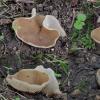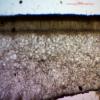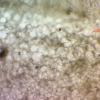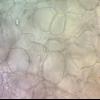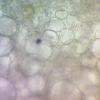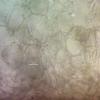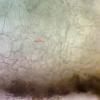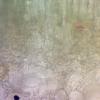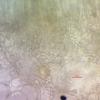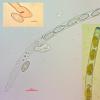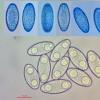
15-12-2025 15:48
 Danny Newman
Danny Newman
Melanospora cf. lagenaria on old, rotting, fallen

15-12-2025 15:54
 Johan Boonefaes
Johan Boonefaes
Unknown anamorph found on the ground in coastal sa

15-12-2025 21:11
 Hardware Tony
Hardware Tony
Small clavate hairs, negative croziers and IKI bb

15-12-2025 07:09
 Danny Newman
Danny Newman
indet. Rutstroemiaceae sp. on unk. fallen leavesMc

15-12-2025 07:05
 Danny Newman
Danny Newman
Pseudosclerococcum golindoi (det: Zotto)near Cosb

15-12-2025 11:49
 Danny Newman
Danny Newman
ITS sequences from the following two collections B

15-12-2025 12:34
 Danny Newman
Danny Newman
indet. Rhytismataceae on oak leafnear Purchase Roa

09-12-2025 12:06
 Andgelo Mombert
Andgelo Mombert
Bonjour,Je recherche l'article concernant Hypobryo
Malvipezia howsei?
Marek Capoun,
10-10-2021 14:01
 Hello everybody, I need help with the determination of this Peziza.
Hello everybody, I need help with the determination of this Peziza.Spooner's key leads me to Malvipezia (Peziza) howsei, but this key does not contain many species such as P. emileia etc.
Collected at the beginning of September, in a warm mixed, mainly deciduous forest on the humous calcareous, slightly eutrophic soil under Tilia and Juglans nigra, altitude cca 300 m, .
Apothecia gregarious in a loose group, up to 60 mm on average, mostly undulate, fawn with slightly violaceous tinge.
Asci with croziers, amyloid reaction WTR type.
Ascospores with Me = 19.8 × 9.1 µm, Qe = 2.2; with 2 LBs; verrucose, warts regular, isolated, punctate or short ridges, usually more pronounced at poles. The paper "Morphological and molecular study of Peziza emileia and P. howsei, two distinct taxa" by Medardi et al. defines the different ornamentation of spores quite clearly.
Excipulum is the problem. This cited paper, and other resources, of course, states a two-layered medullary excipulum, but I can't see 2 clearly defined layers. It seems to me, there are globose cells in the upper part of tissue, but in the lower part I can see some fusoid or pyriform, globose and angular cells, but no textura intricata or something like that. The subhymenium is supposed to be made up of cells of the text. intricata too, but I see such a structure again that I would not normally consider to be an intricata.
Thanks for help.
Marek
Nicolas VAN VOOREN,
10-10-2021 18:29

Re : Malvipezia howsei?
Hi Marek.
At first sight, your collection is macroscopically similar to Malvipezia emileia, but the ascospores do not fit. So your determination is correct.
It perfectly illustrates why there are so much confusions between these two species.
Note that the one-layered excipulum seems to be a good feature to characterise species of Malvipezia.
At first sight, your collection is macroscopically similar to Malvipezia emileia, but the ascospores do not fit. So your determination is correct.
It perfectly illustrates why there are so much confusions between these two species.
Note that the one-layered excipulum seems to be a good feature to characterise species of Malvipezia.
Marek Capoun,
11-10-2021 00:58

Re : Malvipezia howsei?
Thank you, Nicolas, I liked to meet this species.
M.
M.
